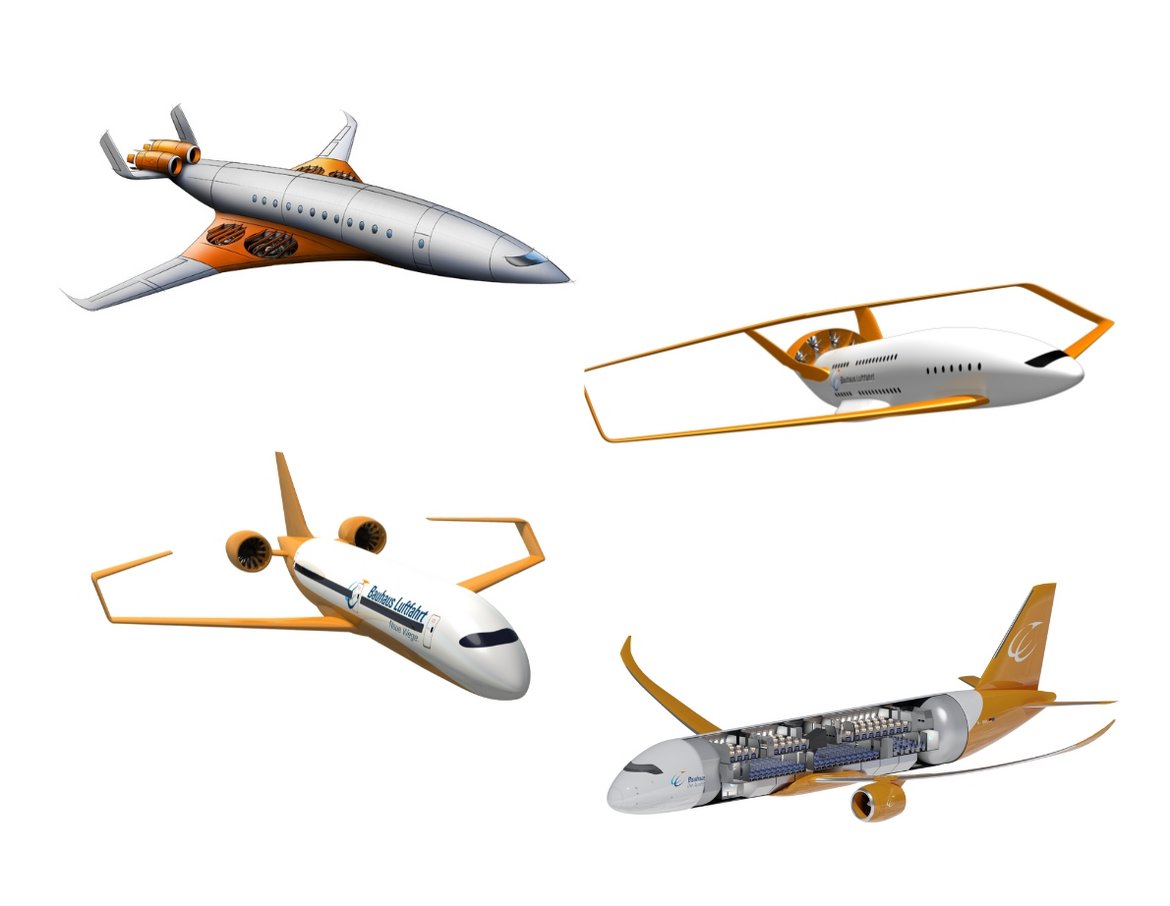Bauhaus Luftfahrt e.V. was founded in November 2005. Its mission: working together across disciplines to develop new approaches for tomorrow's air transport. The research center is a public-private partnership involving the Free State of Bavaria, Airbus, the German Aerospace Center, IABG, Liebherr-Aerospace, and MTU Aero Engines. The international team of around 50 people is working on a wide range of projects to find ways to make aviation climate neutral.
What energy options will shape the future of aviation? How to link different modes of transport more efficiently? How much further can the efficiency of aircraft and their engines be improved? “For 20 years, Bauhaus Luftfahrt has been researching all aspects of future-proof aviation. It is our mission to look far ahead to identify paths for sustainable transformation—institutionally supported, independent, and with an open mind,” explains Prof. Dr. Mirko Hornung, Executive Director Research and Technology.
Key research findings from two decades
- It is not biofuels that offer the greatest potential for “green fuels.” Due to their limited scalability and strong regional dependence, these are more likely to serve as a bridge technology. Options that are viable in the long term include advanced biofuels produced from waste and residual materials as well as fuel synthesis using solar and wind energy and carbon captured from the air.
- Renewable hydrogen will be crucial—both as a basis for sustainable fuels and for direct use in the aircraft.
- Electric battery-powered propulsion systems are generally the best option for climate-neutral flying. However, battery technologies will need to go far beyond their current performance levels for them to become relevant for aviation beyond niche applications.
- Although hybrid electric propulsion systems can increase efficiency, they cannot surpass other innovations in propulsion, structure, or aerodynamics.
- Operational concepts such as aircraft sharing and new network structures can also significantly reduce the impact on the climate; current research estimates a reduction of more than ten percent.
- While urban air mobility for passengers will remain a niche market with limited impact on the air transport system, regional air mobility has the potential to make a significant contribution, especially thanks to new network structures and intermodal concepts that integrate regional airports, for example.
Facts & figures about the think tank
- Bauhaus Luftfahrt has just under 50 employees, with around a dozen students providing additional research support. There are currently 18 nations represented.
- The team brings together disciplines from engineering, natural sciences, social sciences, and economics, and conducts research in the areas of propulsion, aircraft structure, passenger and market trends, sustainable development and guidelines, energy and fuels, as well as network, fleet, and operation.
- Quick access to experts from different disciplines within the team enables a diverse exchange of ideas on disruptive potential and provides a unique overview of the entire aviation system.
- Current research is conducted in more than 20 projects supported by the European Union, the German federal government, the Free State of Bavaria, and industry.
- Bauhaus Luftfahrt is funded by grants from the Free State of Bavaria, membership fees, public third-party funds, and industrial projects.
- Members include Airbus, the German Aerospace Center (DLR), IABG Industrieanlagen-Betriebsgesellschaft, Liebherr-Aerospace, and MTU Aero Engines.
Statements on the anniversary
“Bavaria is synonymous with innovation and progress. Interdisciplinary research in future-oriented fields is crucial for us as a technology hub. It was 20 years ago that the Bavarian state government founded Bauhaus Luftfahrt with partners from the industry. Today, the institution is an internationally recognized partner. Working together with science, industry, politics and the public, young scientists are working on key aviation topics. Our billion-euro high-tech agenda provides further momentum for their outstanding work in Bavaria’s ‘Aerospace Valley’.“
Dr. Markus Söder, Minister-President of the German Free State of Bavaria
“Bauhaus Luftfahrt has developed into an internationally recognized think tank for aviation while retaining its start-up character. This ensures creativity and innovative strength. At the same time, its balanced and independent position is crucial in guiding industry, politics, and aviation toward necessary changes and investments.”
Lars Wagner, CEO of MTU Aero Engines and Chairman of the Advisory Board of Bauhaus Luftfahrt, München/Germany
“Bauhaus Luftfahrt is a recognized aviation think tank and valuable resource for the industry. Its highly skilled team offers a system-level perspective with expertise ranging from conceptual aircraft design to socioeconomic dimensions.”
Axel Krein, Executive Director of Clean Aviation Joint Undertaking in Bruxelles/Belgium
“Bauhaus Luftfahrt has grown into a world-class entity that plays a critical role in the global aviation industry. Its highly capable team consistently provides innovative concepts and has always been at the cutting edge of aeronautics.”
Dimitri Mavris, PhD, Director of Aerospace Systems Design Laboratory ASDL at Georgia Institute of Technology/USA
“The challenges currently facing our industry, particularly with regard to aviation sustainability, are enormous. However, I am confident that we have the knowledge and skills necessary to find, develop, and communicate the right solutions. Bauhaus Luftfahrt has a crucial role to play, especially in social discussions.”
Roland Gerhards, Managing Director of ZAL Center of Applied Aeronautical Research, Hamburg/Germany
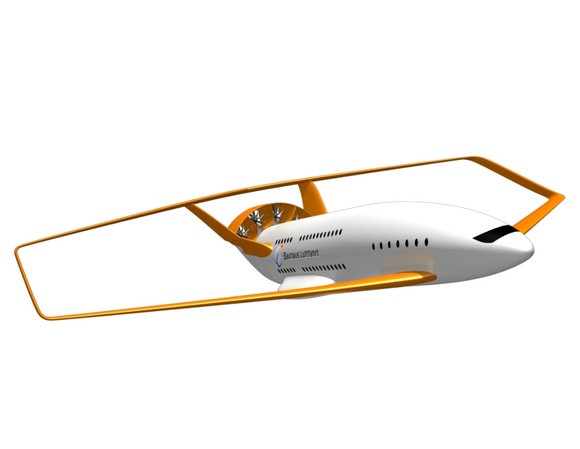
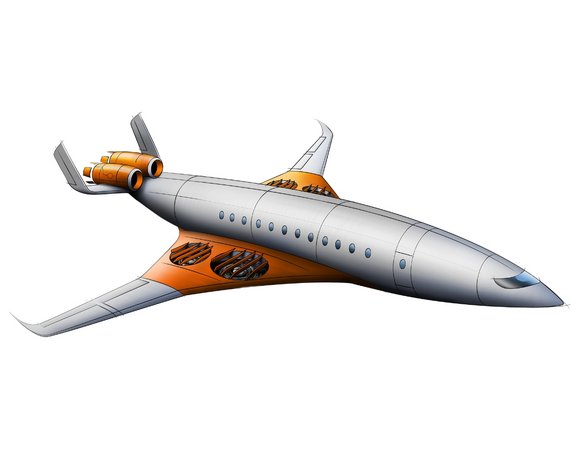
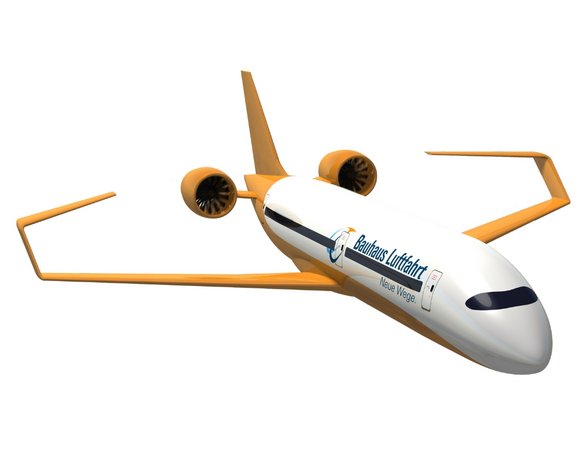
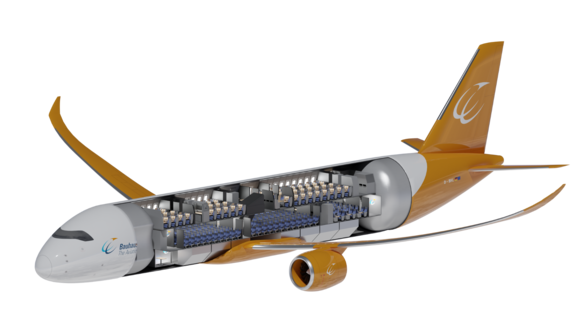
Communications Manager
silvia.hendricks[at]bauhaus-luftfahrt.net
+49 89 3074-849-78

